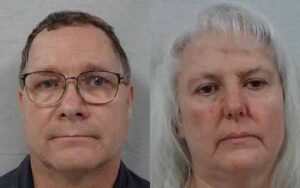
WASHINGTON (BP)–Seeking to heal divisive political history within its ranks, the Baptist Union of Romania has decided reconciliation with its communist past is better than seeking political or legal judgments against its own people.
The initiative is specifically directed at pastors who may have cooperated with the secret police during the years of communism in which many Baptist pastors and people were persecuted. One of those persecuted was Paul Negrut, now president of the Baptist Union.
Negrut, in a visit to the Baptist World Alliance Feb. 5, reported that Romanian Baptists have agreed to deal with their communist past in a biblical, pastoral way. Each pastor who may have cooperated with the secret police has been asked to declare the facts, Negrut said. “Once that is done, there will be no judicial decision, but we will deal with this pastorally and forgive the person and move on,” he said. “Because of this, there is no tension from the past and we can focus on evangelism and church growth as our priority.”
Today in Romania there are more than 100,000 baptized believers in 1,800 Baptist churches. When communism ended in 1990, there were 600 churches in the union, so subsequent growth has been explosive. In 2001, Negrut reported, more than 10,000 people were baptized.
Negrut said that Baptists feel a greater sense of unity than ever before, and not only because of their decision to deal with what happened under communism, but also in their commitment to the principle of separation of church and state.
During this time of economic hardship in his country, for example, Negrut reported the government issued laws for pastors to register and receive government subsidies. “This was a great temptation,” Negrut said, “because a Baptist pastor makes between U.S. $80-100 per month.” The pastors met and prayed and decided to say “No” to the government offer, he said.
In an effort to strengthen the work of the Baptist Union, Negrut said pastors “who may have entered the ministry for many different reasons” have been asked to take a year out for prayer and reflection to see what God is calling them to do.
In other concerns, Negrut thanked the BWA for its help in writing to the Romanian government on the issue of the separation of church and state.
Negrut thanked BWA General Secretary Denton Lotz who in 1991 met with President Ion Iliescu and again traveled to Romania in December 1997 to meet with then-President Emil Constantinescu.
In the meeting with Constantinescu, Lotz urged him to extend religious freedom to all. Negrut reported that the meeting had a profound effect for Baptists, but it is now time to address the issue again, especially in light of a new proposed law that would give priority to the Orthodox.
Also, Negrut thanked Lotz for his more recent letter to the newly re-elected President Iliescu, which helped restrain an anti-evangelical clause in the new draft law on religion. There have been many attacks on churches in Romania, most memorably a 1997 attack when a group of people accosted nine Baptists in the town of Ruginoasa on Easter Sunday.
Last November, Negrut recounted, a number of Baptist pastors went to a town hall in Romania to show the “Jesus” film. They had rented a hall and had received permission from the mayor of Niculitel in the county of Tulcea and had posted several posters to promote the meeting.
When they arrived at the home of some friends in town, one of the local priests came with others and began to “call down curses on the Baptist church.” They threatened to throw the Baptist leaders out of the town and to assault them. This continued for quite a while and one of the people with the priest used a knife to pierce one of the rear tires of the Baptists’ van, causing a flat tire.
This harassment continued until the Baptist leaders were forced to leave the town.
When television reporters tried to interview some of the people who were involved in the conflict, they were met by 400 to 500 angry people who had again been stirred up by the priest, Negrut said.
This and other incidents of harassment, he said, continue to confront evangelicals in his country. He urged the BWA to continue to be vigilant to speak out on their behalf for religious freedom.
–30–













